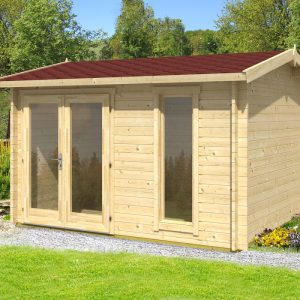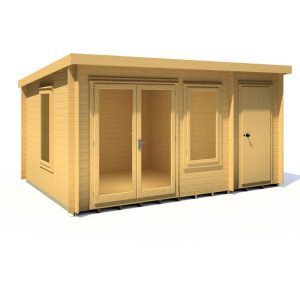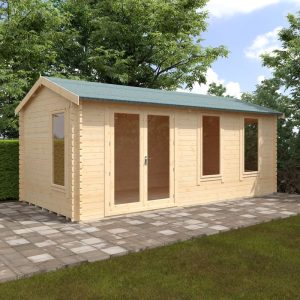This 14’x10′ Procas Express Log Cabin is constructed with sturdy 44mm garden log cabins. The Procas Express is a versatile cabin designed for various uses. Suitable for the whole family, it serves as a wonderful extension to your household and outdoor area. Its long, double glazed windows and doors provide ample illumination, perfect for those balmy summer evenings. With the convenience of a pick a day delivery service, you can swiftly create your ideal space with this 14’x10′ Procas Express Log Cabin – 44mm Garden Log Cabins model.















































